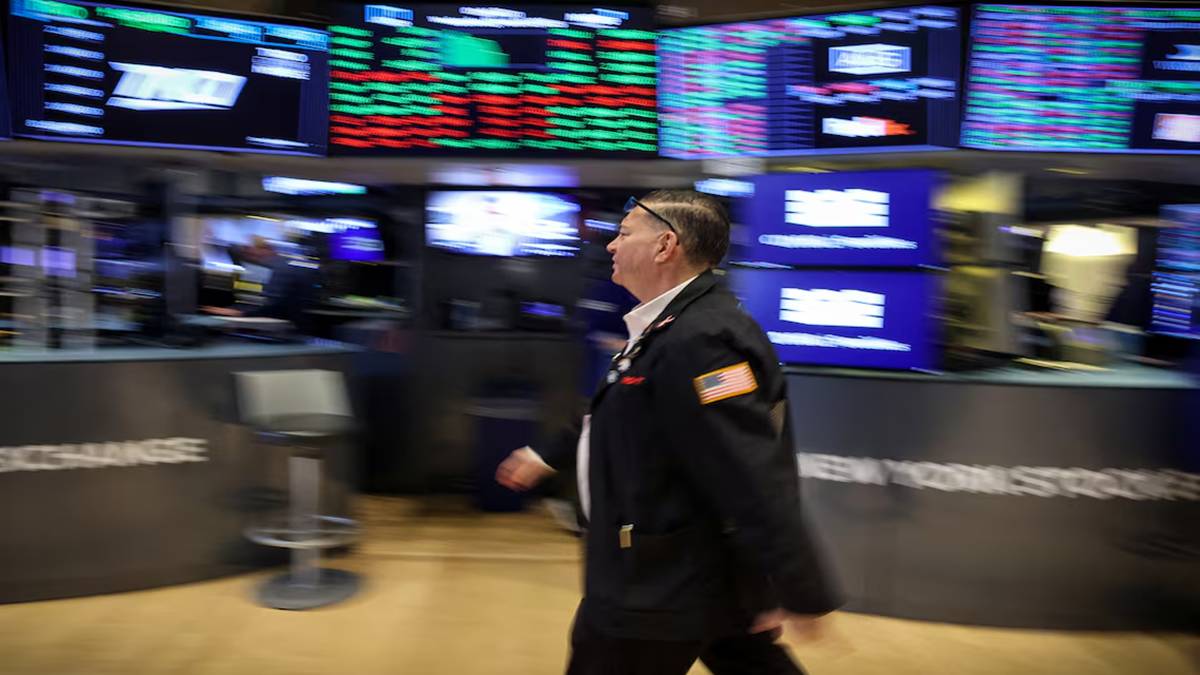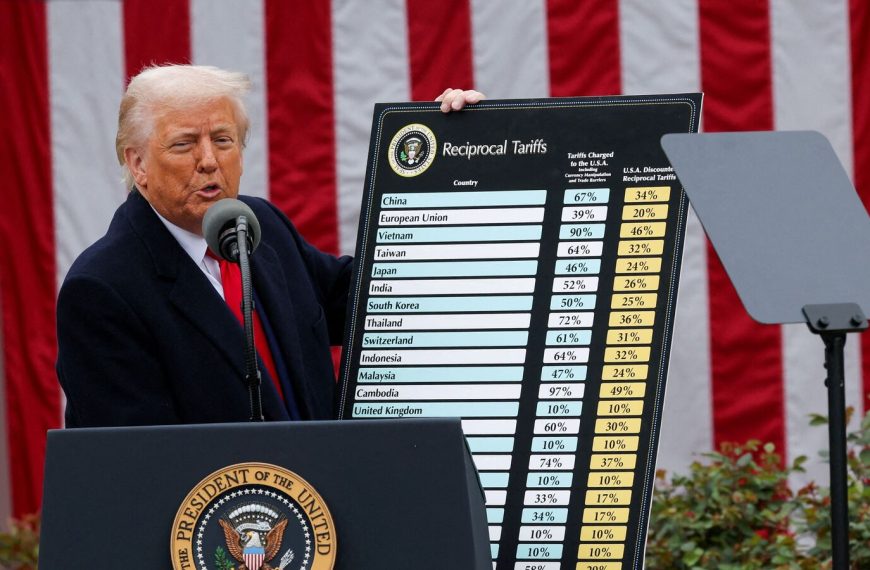On Wednesday, President Donald Trump unveiled a series of tariffs that exceeded market expectations, creating significant ripples across global financial markets. Investors expressed concerns that these new duties could hamper economic growth, reduce corporate profits, and ignite inflationary pressures. The announcement has sparked renewed fears of an escalating trade war, a situation reminiscent of Trump’s return to the White House.
Major Tariff Announcements Impact Global Markets
President Trump declared a 10% baseline tariff on all imports to the United States, alongside steeper tariffs directed at some of the nation’s largest trading partners. This move is seen as a reversal of the trade liberalization trends established over decades, raising new barriers for the world’s most substantial consumer market.
- Key Highlights:
- A 10% baseline tariff will apply to all imports.
- Higher tariffs target specific countries, particularly those in Asia.
- This announcement escalates the ongoing trade tensions initiated by Trump.
Market Reactions and Investor Sentiment
The market’s immediate response was profound, with U.S. stock futures plunging, particularly the S&P 500 E-minis, which dropped by 3.5%. The euro also fell by 0.3% amidst the uncertainty. Initially, investors felt a sense of relief at the announcement of the 10% tariff, which seemed less severe than anticipated. However, relief quickly turned to concern as Trump revealed increased tariffs on nations like Bangladesh, Vietnam, Laos, and Cambodia.
Jay Hatfield, CEO of Infrastructure Capital Advisors, remarked, “This scenario is the worst that markets were bracing for. It could potentially push the U.S. into a recession, which explains the weak futures.”
Analyst Insights and Future Implications
As the dust settles, analysts anticipate that the targeted countries may retaliate with their own tariffs, likely leading to increased prices on everyday items ranging from bicycles to wine. Walter Todd, Chief Investment Officer at Greenwood Capital, emphasized the importance of understanding the broader context: “We only have one side of the story right now—our actions. The response from other nations will significantly influence how the market reacts.”
A Critical Moment for U.S. Stocks
This tariff announcement comes at a pivotal time for U.S. equities. The S&P 500 recently confirmed a correction, having dropped 10% from its peak, and is currently around 8% below its record high set in February. According to Steve Sosnick, Chief Strategist at Interactive Brokers, “We find ourselves in a precarious position at the bottom of a corrective trading range, which could lead to either a swift rebound or a sharp decline.”
Investors are now left to navigate this unpredictable landscape, weighing the potential consequences of increased tariffs against the backdrop of a fragile recovery. As the situation unfolds, all eyes will be on the global response and its implications for the U.S. economy and beyond.










